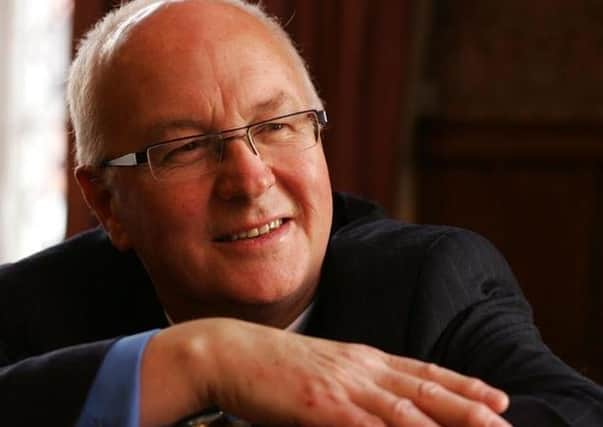Religion: politeness or enthusiasm


To those of a certain age, he will be fondly remembered as the creator, and for 25 years the presenter, of the niche television quiz show, ‘University Challenge’.
Gascogne had aristocratic connections, and it showed.
He was a nephew of Captain Terence O’Neill, former Prime Minister of Northern Ireland, and he had links with the great Cecil family of Hatfield House in Hertfordshire, which for centuries has provided politicians and statesmen to lead in national affairs, including Lord Salisbury, who served as Prime Minister under Queen Victoria.
Advertisement
Hide AdAdvertisement
Hide AdAs well as adapting an American college quiz for British television, and writing all the early questions himself, he coined some memorable phrases; ‘Fingers on buzzers’, ‘Your starter for ten’, ‘I’ll have to hurry you’.
In addition, he was a serious writer, and one of his earliest books was entitled ‘The Christians’, designed to complement a television series. One chapter in that book, dealing with the religious situation in eighteenth century Britain has an arresting title; ‘Politeness or Enthusiasm?’
That century saw a dramatic contrast between the clergymen of the established church, men perfectly at ease with the lord of the manor, riding to hounds with him and drinking his port. Such men feature in the novels of Jane Austen and Anthony Trollope.On the other hand there were the fiery new evangelists, men like Wesley and Whitfield, who were often forced to preach in the open air because the local rector found their gospel, of a heaven to win and a hell to shun, too vulgar for their refined taste.
Gascoigne’s alternatives are somewhat stark, since even enthusiastic religion must embrace politeness, and there is something fundamentally wrong with a religion which does not produce refinement of character.
Advertisement
Hide AdAdvertisement
Hide AdChrist calls us to ‘go the second mile’, and ‘turn the other cheek’, and to do to others what we would like them to do to us.
Paul counselled his Philippian friends, ‘Let your gentleness be evident to all’(Philippians 4;5). Besides, there are some manifestations of religious enthusiasm we could well do without.
Yet the fact remains that it was the ‘enthusiasm’ of the eighteenth century religious revivals which, in the estimation of some students of history, saved Britain from the bloody revolutions which engulfed France. Besides, as Ralph Waldo Emerson observed, ‘Nothing great was ever achieved without enthusiasm’.
The God of the Bible is an enthusiastic God. Isaiah spoke of ‘The zeal of the Lord of hosts’(Isaiah 9;7) while Jeremiah reported God’s promise to his people; ‘I will rejoice in doing them good and will assuredly plant them in this land with all my heart and soul’(Jeremiah 32;41). Jesus had no time for the half-hearted, laying the cost of discipleship on the line: ‘If anyone would come after me, he must deny himself and take up his cross daily and follow me’(Luke 9; 23).
Advertisement
Hide AdAdvertisement
Hide AdThe early Christians in Laodicea were left in no doubt that enthusiasm is called for in the service of the Saviour; ‘Because you are lukewarm - neither hot nor cold— I am about to spit you out of my mouth’ (Revelation 3; 16). Let us take heed!